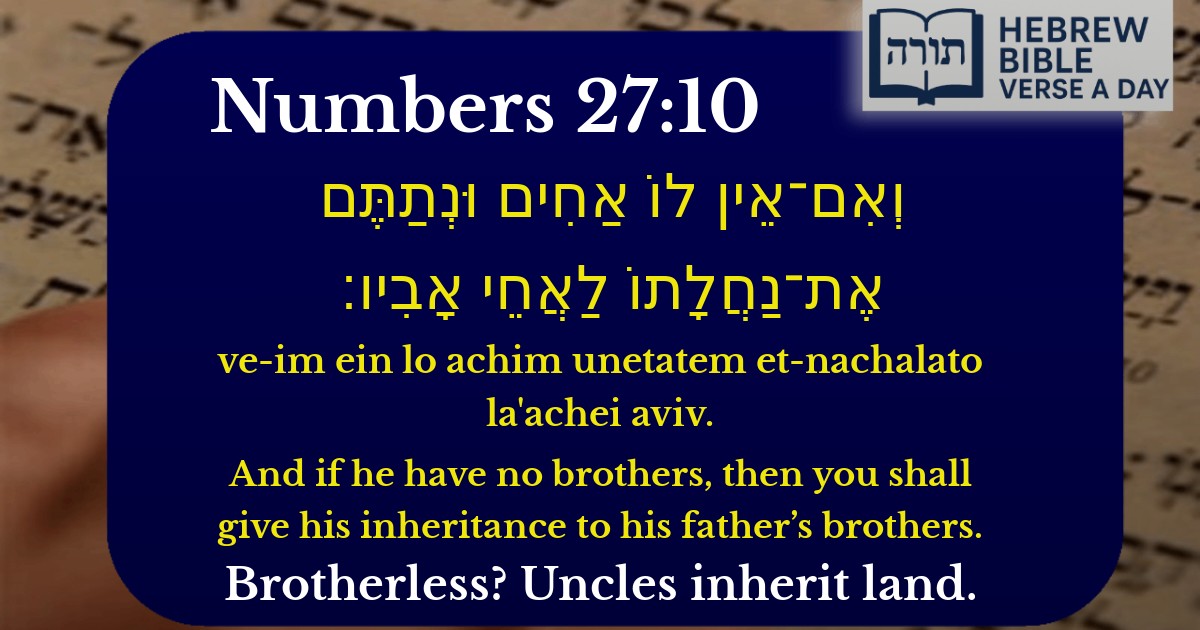Join Our Newsletter To Be Informed When New Videos Are Posted
Join the thousands of fellow Studends who rely on our videos to learn how to read the bible in Hebrew for free!
Hebrew Text
וְאִם־אֵין לוֹ אַחִים וּנְתַתֶּם אֶת־נַחֲלָתוֹ לַאֲחֵי אָבִיו׃
English Translation
And if he have no brothers, then you shall give his inheritance to his father’s brothers.
Transliteration
Ve-im ein lo achim unetatem et-nachalato la'achei aviv.
Hebrew Leining Text
וְאִם־אֵ֥ין ל֖וֹ אַחִ֑ים וּנְתַתֶּ֥ם אֶת־נַחֲלָת֖וֹ לַאֲחֵ֥י אָבִֽיו׃
וְאִם־אֵ֥ין ל֖וֹ אַחִ֑ים וּנְתַתֶּ֥ם אֶת־נַחֲלָת֖וֹ לַאֲחֵ֥י אָבִֽיו׃
🎵 Listen to leining
Parasha Commentary
📚 Talmud Citations
This verse is not quoted in the Talmud.


Inheritance Laws in the Torah
The verse (Numbers 27:10) discusses the laws of inheritance when a deceased man has no brothers. According to the Torah's system of inheritance, the order of succession is clearly outlined, with priority given to male relatives in a specific hierarchy. Rashi explains that this verse comes to teach that if the deceased has no sons or brothers, the inheritance passes to his father's brothers—his paternal uncles.
Hierarchy of Inheritance
The Talmud (Bava Batra 109a-110b) elaborates on the order of inheritance based on this verse and others:
Rambam's Legal Codification
Rambam (Mishneh Torah, Hilchot Nachalot 1:3-4) codifies this law, emphasizing that the paternal uncles inherit only when there are no closer male relatives. He further clarifies that if the father's brothers are also deceased, the inheritance continues to more distant male relatives in the paternal line.
Midrashic Insight
The Midrash (Bamidbar Rabbah 21:8) connects this law to the broader theme of maintaining family continuity in Eretz Yisrael. By ensuring that land remains within the family, the Torah safeguards the tribal divisions and the divine promise of the Land to the descendants of Avraham, Yitzchak, and Yaakov.
Practical Implications
This verse underscores the Torah's emphasis on preserving family legacy and property. The Sages derive from this that even distant relatives have a responsibility to uphold the deceased's inheritance, ensuring that land remains within the tribe as commanded in the Torah (Numbers 36:7-9).